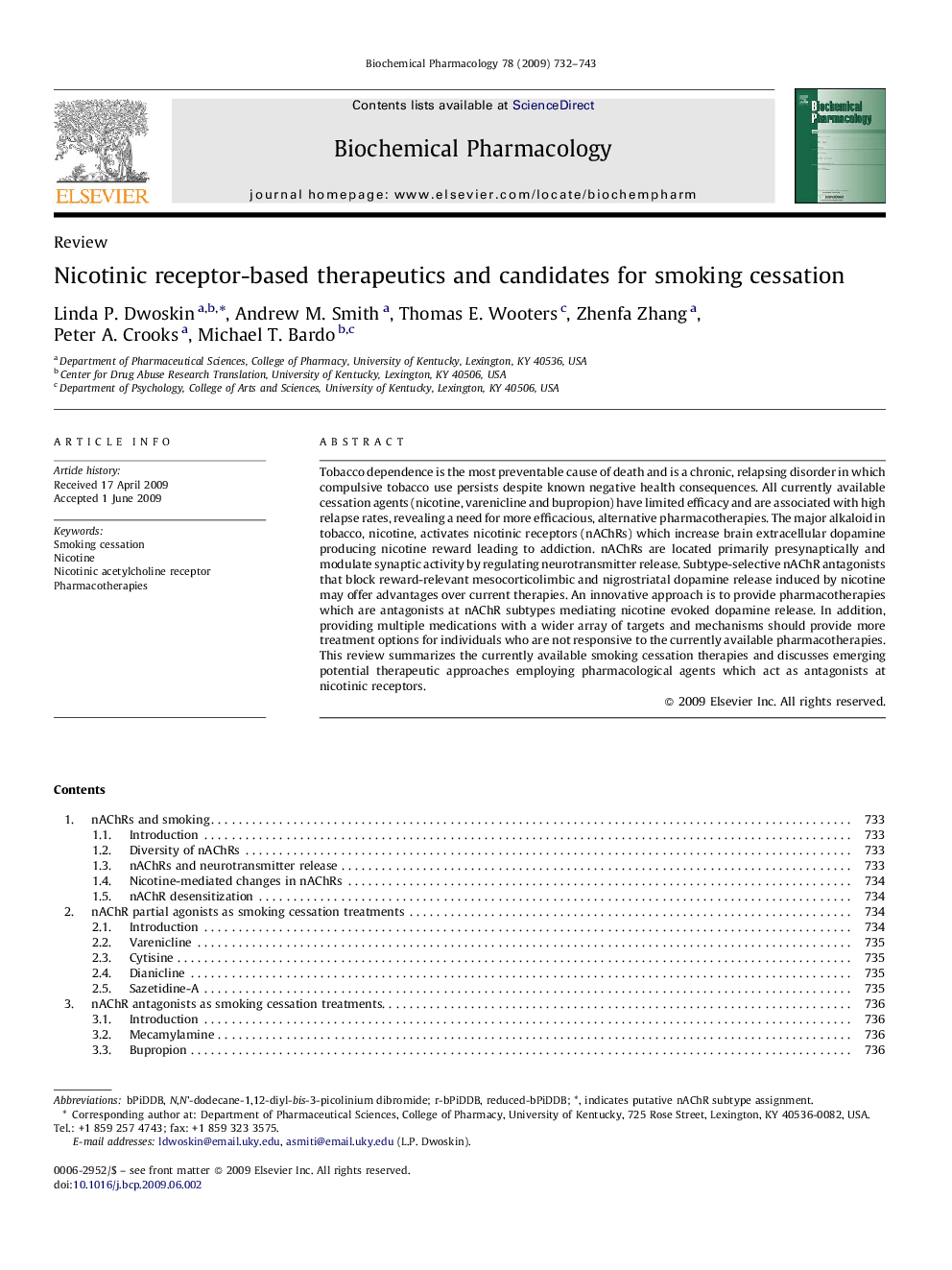| Article ID | Journal | Published Year | Pages | File Type |
|---|---|---|---|---|
| 2513855 | Biochemical Pharmacology | 2009 | 12 Pages |
Tobacco dependence is the most preventable cause of death and is a chronic, relapsing disorder in which compulsive tobacco use persists despite known negative health consequences. All currently available cessation agents (nicotine, varenicline and bupropion) have limited efficacy and are associated with high relapse rates, revealing a need for more efficacious, alternative pharmacotherapies. The major alkaloid in tobacco, nicotine, activates nicotinic receptors (nAChRs) which increase brain extracellular dopamine producing nicotine reward leading to addiction. nAChRs are located primarily presynaptically and modulate synaptic activity by regulating neurotransmitter release. Subtype-selective nAChR antagonists that block reward-relevant mesocorticolimbic and nigrostriatal dopamine release induced by nicotine may offer advantages over current therapies. An innovative approach is to provide pharmacotherapies which are antagonists at nAChR subtypes mediating nicotine evoked dopamine release. In addition, providing multiple medications with a wider array of targets and mechanisms should provide more treatment options for individuals who are not responsive to the currently available pharmacotherapies. This review summarizes the currently available smoking cessation therapies and discusses emerging potential therapeutic approaches employing pharmacological agents which act as antagonists at nicotinic receptors.
Graphical abstractFigure optionsDownload full-size imageDownload as PowerPoint slide
